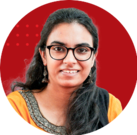STUDENT OPINION
74 years of Independence; have we learnt nothing?

Sanjana Kapoor - Student, Kautilya 2021-23
Published on :
A simple Google search will show you the meaning of the word Dalit as ‘broken/scattered’ in Sanskrit. The word ‘Dalit’ was first used by Indian social activist Jyotiba Phule and was translated as a meaning for the oppressed or depressed classes, the term Scheduled Castes (SC) is used in legal terms. Then Dr. B.R. Ambedkar started using the word Dalit in a much wider context, including people at the lowest rungs of the caste hierarchy. A community that has been subjected to all kinds of oppression or discrimination.
There are a lot of questions that come to my mind when I read about the Dalit atrocities. Why is it that even after 74 years of Independence, a community with a population as large as 200 million is living under horrifying conditions? Why do basic human rights not apply to Dalits? Why does the dominant caste only pay attention to caste issues when monstrous acts are inflicted on their community? Why did the Uttar Pradesh government think an ‘international plot’ to defame the party was more plausible than a gang-rape of a 19-year-old Dalit girl? According to the National Crimes Bureau, Uttar Pradesh records the highest number of atrocities against SC in India. Why then, did it take the CM almost a month to reluctantly order a CBI probe in the Hathras case?
The history of injustices faced by this community, and the emotional and physical trauma they are put through, is dehumanising. They live in constant fear of oppression by the upper castes, face segregation in their neighbourhood, are given menial jobs; 1 million Dalits work as manual scavengers. Most of them are not entitled to education, they are deprived of the resources and access to affordable living. Government bodies, media, and dominant castes citizens do not value the humanity of Dalits. Caste is used as per the convenience of the ruling party and the privileged sections of society. Civic protests are given the name of riots, when the rights of the marginalised communities are in question.
We talk about India’s development in terms of education, healthcare and electricity for all, but an entire quarter of India’s population living in appalling conditions is ignored. Dalits only get a minimum number of seats in the parliament. Their representation in government, media, entertainment, offices, newsrooms etc., is only bare minimum. How will their voices be amplified if they are not present in any leadership roles? Policies for the oppressed castes are made by the dominant castes; they are oblivious of the experiences, yet they are responsible for making decisions for them
India’s Constitution is glorified, liberal, modern and forward-looking, but we live by the mindsets which are a thousand years old. We do not live by the principles and the values that our Constitution laid down for us. Ironically, the father of the constitution, Dr B.R Ambedkar, was a Dalit man himself. Reservation should be made more acceptable and expandable as even today, it can change the lives of a huge chunk of India’s population.
There are gender and caste-based hierarchies within the community as well, where it is way worse off for Dalit women. They are treated as almost dispensable, hence facing the largest number of crimes, majority of which go unreported. According to the NCRB data, more than 4 Dalit women are raped every day. There is a sheer lack of justice for these women.
Sumeet Blue, a student activist, said, “If a small section of Dalit women activists had to debate the fundamental ground of Caste in the incident to famed urban educated feminists, one could only imagine what Dalits in these villages & small towns have to live through amidst Thakurs living in their medieval feudal pride.” It is about time the privileged castes passed the baton to the oppressed castes, sensitise with their issues and amplify their voices. And in order to be allies in this process, the first step is to educate ourselves. Read, listen and understand the plight and injustices faced by our fellow citizens, make the legal systems more accountable. There is a need for change, for structural reforms, for appropriate and long due representation. The change will be a drastic one, not readily accepted, and in the words of Divya Malhari (a Dalit writer), this change can take place when you “Make it your cause, and fight.”
References :
*The Kautilya School of Public Policy (KSPP) takes no institutional positions. The views and opinions expressed in this article are solely those of the author(s) and do not reflect the views or positions of KSPP.
Rudraram, Patancheru Mandal
Hyderabad, Telangana 502329
